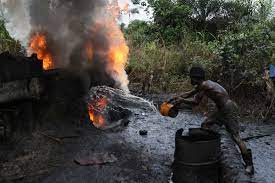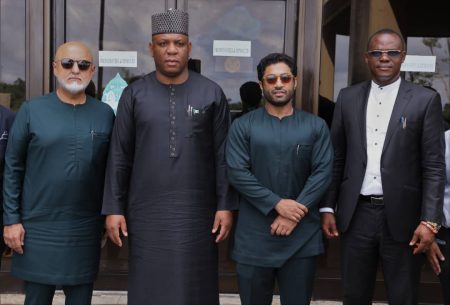
– Alleges ploy to evade responsibility
Mkpoikana Udoma
Port Harcourt — Stakeholders in the Niger Delta on Monday faulted the reasons advanced by oil multinationals for divesting from onshore assets, in preference for offshore and deep offshore fields.
The stakeholders said the divestment move by oil multinationals was contrary to the energy transition advocacy to renewable energy sources, but rather a ploy to abdicate development obligations and responsibility for polluting the area.
They spoke at a one-day CSO/Media roundtable on the deceit behind divestment of oil companies, organised by the Environmental Rights Action Friends of the Earth Nigeria, ERA/FoEN, in Port Harcourt, the capital of oil rich Rivers State.
Speaking, the Executive Director of ERA/FoEN, Barr. Chima Williams, said it was a known fact that divestment has become a major issue as the oil majors abandon their toxic onshore facilities and go offshore where they evade monitoring.
Williams explained that the exclusion of communities and community concerns in the divestment discourse motivated ERA/FoEN to facilitate the dialogue.
Also Speaking, a university don, Prof Sofiri Peterside, Sociology lecturer at University of Port Harcourt, shared their perspectives on divestment to lay foundations for the dialogue.
Peterside explained that while global divestment advocacy was driven by the quest for cleaner energy sources, the same cannot be said of IOCs in Nigeria, who are merely abandoning polluted sites to deep offshore fields to escape scrutiny on the operations.
According to him, the major reason IOCs were divesting is. because of the historical legacies of environmental damages and to evade being responsible for the undevelopment in the host communities.
“There is a need for a better understanding and deepened community engagements on the global environmental justice and community definitions of divestments vis-a-vis the model of the IOCs in the Niger Delta.”
Also, Executive Director of Kabetkeche, Emem Okon, noted that community people of all classes, especially women, have suffered exclusion in the divestment process.
Okon added that the divestment process has largely weakened local struggles for environmental justice, divide communities.
For his part, the Executive Director of We The People, Mr Ken Henshaw, harped on the need to integrate the communities to make them the central focus of the ongoing onshore divestment process by IOCs.
Henshaw regretted that even NNPC had no framework for divestment, adding that since there would be no 70years of oil exploration, the narrative of divestment should be focused on the injustices against the Niger Delta host communities.
“There is complicit silence by the Nigerian state and the regulatory agencies as IOCs dictate the terms of divestment.
“The decision making on the divestment process and other matters relevant to the local communities in the Niger Delta and the IOCs and Nigerians government have excluded the communities.
“There is the need for the IOCs to decommission their toxic assets and carry out remedial actions monitored by independent bodies and civil societies in the communities.
“The oil and gas companies in Nigeria should be held liable for nearly 70 years of ecocide in the Niger Delta as precursor to remedial actions and compensation.
“Divesting abandoned toxic assets and complex problematic relationships with communities that the indigenous oil companies, have inherited and continued to perpetrate.
“Indigenous oil operators have inherited and continued the tradition of impunity and lack of accountability to local communities.”
Follow us on twitter



